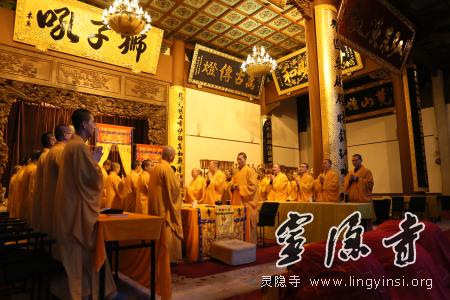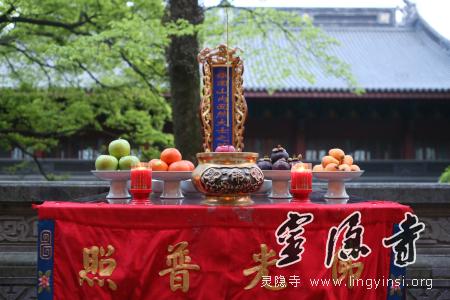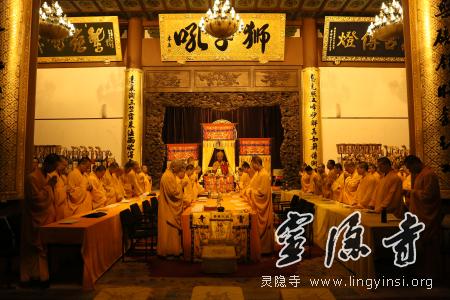
As the willow branches started to show new growth in April drizzles, Qingming festival of 2013, or Kuisi “Snake” Year according to Chinese era, arrived as expected. To express respect for the deceased and the gratitude towards ancestors as promoted in Buddhism, Lingyin Temple hosted solemn ancestor memorial and worshiping ceremonies on 4 April 2013.

On the morning of the Qingming Festival, over one hundred venearables of the temple was led by former head cook of the temple , Ven. Juexing, to head for the Forest of Stupas for tomb-sweeping. Magnificent worshiping ceremonies were held in front of the stupas of great masters and vandana of previous generations such as Master Dabei, Master Xingkong and Pre-abbot Muyu. The venerables then went to old and new halls where tablets of ancestors of lay disciples and householders are enshrined so as to worship them, chanting Sutras to relieve the souls of the deceased from suffering. In the evening, lead by Venerables Manfa, Yintuo and Weizhen, Sanghas provided offering to the starving ghosts with the Yoga Flaming Mouth Ceremony, relieving dead families as well as enemies of the deceased, together with all sentient beings, from lower realms to the Pure Land.

As one of the twenty-four divisions of the Chinese lunisolar calendar, Qingming Festival is one of the most important traditional festivals for the Chinese. It is an occasion on which the whole families reunite in the spring, sweeping tombs of their deceased family members and worshiping ancestors, so as to express respect and gratitude for them. Such rituals are in agreement with the filial piety and sense of gratitude promoted in Buddhist thoughts. Therefore, during Qingming Festival, believers would follow Buddhist traditions to worship previous generations of masters and vandana to express gratitude to their diligence in studying and practicing Buddhism, and to their valuable contributions to the continuity of Buddhism.
